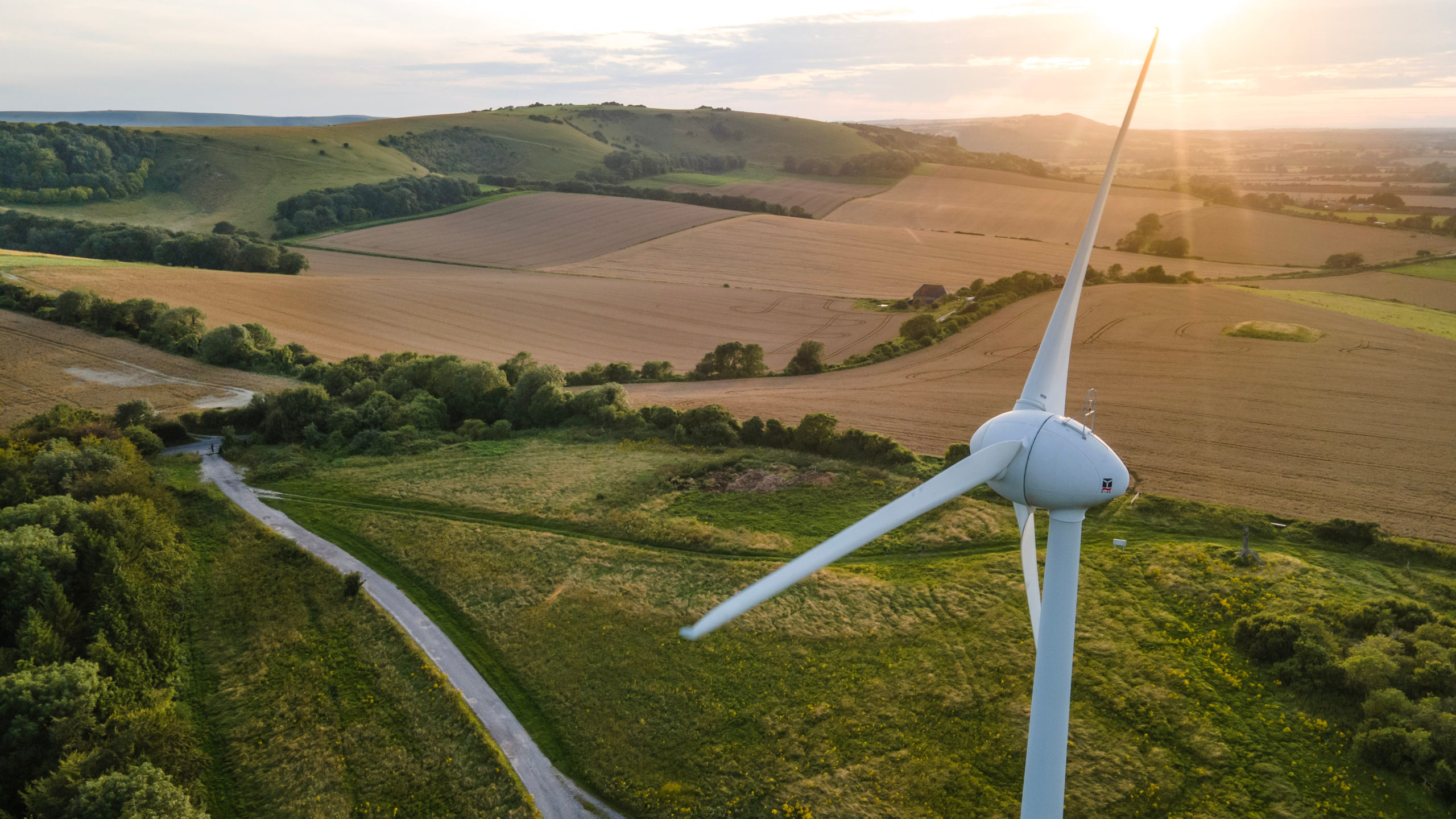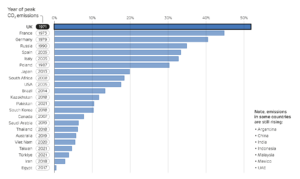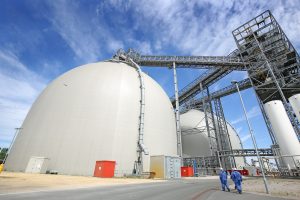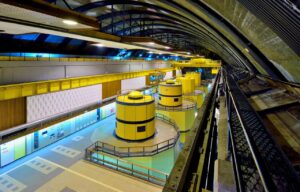
The country’s carbon emissions have fallen by 52% since their peak in 1971, a more significant drop than any other comparable nation.
The reduction in emissions contrasts starkly with other major economies whose emissions are still rising and have yet to peak. Countries including China, India, and Indonesia all still have rising emissions while their economies, which are powered by fossil fuels, rapidly grow.
The findings have been released ahead of the next instalment of the quarterly Drax Electric Insights report. The publication is an independent report by academics from Imperial College London commissioned by Drax through Imperial Consultants.
The Decarbonisation League Table: Reduction in national carbon emissions from all-time peak, across the thirty largest countries which each emit over 200 MtCO2 per year.

Drax Electric Insights sought to review the UK’s decarbonisation performance following the Government announcement in February that the country was the first in the world to halve its greenhouse gas emissions. In their modelling, 1990 was used as the comparison benchmark as the Kyoto Protocol – the world’s first treaty on climate change – used this year as its benchmark year for carbon emissions reduction targets.
The academics behind the Drax Electric Insights report wanted to construct a “fairer comparison” that accounted for the fact individual countries’ carbon emissions peaked at different times. For example, emissions in the United States have not fallen at all compared to 1990, but this masks the fact they have fallen by 18% in the last 17 years following their peak in 2005.
However, even when accounting for this new benchmark year, the UK continues to lead the world in decarbonisation.
Dr Iain Staffell of Imperial College London, and lead author of the quarterly Drax Electric Insights report series, said: “With governments across the world committed to tackling climate change, it is vital we have a way to track their progress that is both accurate and fair.
“By looking at when emissions from a country peaked, we have a fairer way of assessing how seriously countries are taking their commitments to reduce carbon emissions. This will be especially important when looking at the growing Asian economies such as China, India, and Indonesia.
“No other major economy has cut its carbon emissions faster than the UK, which is a real achievement. A large part of the progress made here has been phasing out coal-fired power stations and investing in renewables. However, even with the last remaining coal plant closing in the UK later this year, we will still need to find new ways to meet our 2050 net zero ambitions.”
European nations fill the top seven spots of the Global Decarbonisation League Table, with France and Germany coming 2nd and 3rd behind the UK. While the UK’s emissions peaked in 1979, most countries analysed in the report had emissions peaking in the 21st century.
Drax has played a leading role in the UK’s decarbonisation success. Its eponymous power station in North Yorkshire was Western Europe’s largest coal-fired plant, but through converting it to use biomass, it is now the country’s single-largest renewable generator.
The company plans to go even further in the years ahead and install Bioenergy with Carbon Capture and Storage (BECCS) technology at the plant, with an aim of capturing around 4 million tonnes of CO2 each year from 2030. BECCS is the only technology which can simultaneously generate renewable electricity while permanently removing carbon dioxide from the atmosphere.
Miguel Veiga-Pestana, Drax’s Chief Sustainability Officer, said: “Climate change is the greatest challenge the world faces, and while the UK has already done a great deal, we are only halfway towards reaching net zero.
“To reach that goal, we must start permanently removing carbon from the atmosphere. That is why Drax has been pioneering BECCS technology so we can remove those emissions and at the same time generate renewable electricity for millions of homes and businesses.
“We continue to work with the government to ensure BECCS at Drax Power Station can help the UK achieve its net zero targets, create thousands of jobs, and help strengthen the UK’s long-term energy security.”
ENDS
Media contacts:
Aidan Kerr
E: aidan.kerr@drax.com
T: 07849090368
Editor notes
About Drax
Drax Group’s purpose is to enable a zero carbon, lower cost energy future and in 2019 announced a world-leading ambition to be carbon negative by 2030, using bioenergy with carbon capture and storage (BECCS) technology.
Drax’s around 3,000 employees operate across three principal areas of activity – electricity generation, electricity sales to business customers and compressed wood pellet production and supply to third parties. For more information visit www.drax.com
Power generation:
Drax owns and operates a portfolio of renewable electricity generation assets in England and Scotland. The assets include the UK’s largest power station, based at Selby, North Yorkshire, which supplies five percent of the country’s electricity needs.
Having converted Drax Power Station to use sustainable biomass instead of coal it has become the UK’s biggest renewable power generator and the largest decarbonisation project in Europe. It is also where Drax is piloting the groundbreaking negative emissions technology BECCS within its CCUS (Carbon Capture Utilisation and Storage) Incubation Area.
Its pumped storage, hydro and energy from waste assets in Scotland include Cruachan Power Station – a flexible pumped storage facility within the hollowed-out mountain Ben Cruachan.
The Group also aims to build on its BECCS innovation at Drax Power Station with a target to deliver 4 million tonnes of negative CO2 emissions each year from new-build BECCS outside of the UK by 2030 and is currently developing models for North American and European markets.
Pellet production and supply:
The Group has 19 operational pellet plants and developments with nameplate production capacity of around 5 million tonnes a year.
Drax is targeting 8 million tonnes of production capacity by 2030, which will require the development of over 3 million tonnes of new biomass pellet production capacity. The pellets are produced using materials sourced from sustainably managed working forests and are supplied to third party customers in Europe and Asia for the generation of renewable power.
Drax’s pellet plants supply biomass used at its own power station in North Yorkshire, England to generate flexible, renewable power for the UK’s homes and businesses, and also to customers in Europe and Asia.
Customers:
Drax supplies renewable electricity to UK businesses, offering a range of energy-related services including energy optimisation, as well as electric vehicle strategy and management.
To find out more go to the website www.energy.drax.com



























